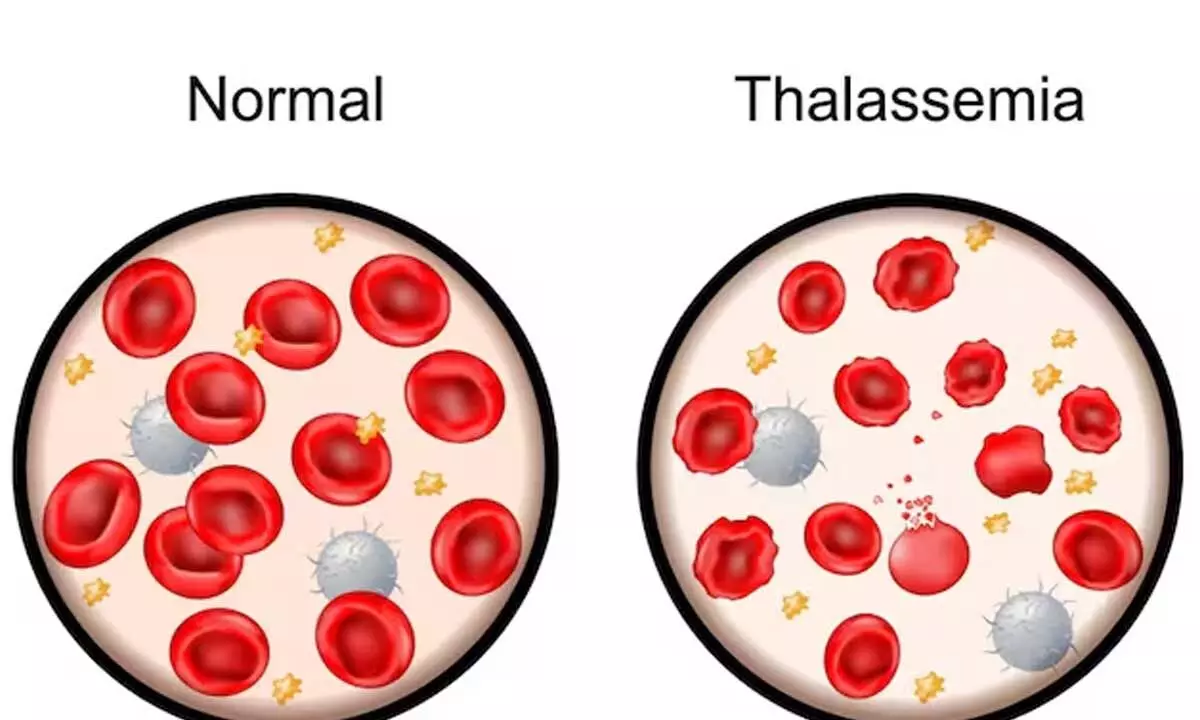Thalassemia Awareness: The Importance of Screening for Aspiring Parents

Thalassemia, a significant genetic blood disorder, has been receiving increased attention due to awareness efforts led by influential figures.
Thalassemia, a significant genetic blood disorder, has been receiving increased attention due to awareness efforts led by influential figures. This awareness is crucial for individuals, especially aspiring parents, to understand the implications of the condition and the importance of undergoing screening before starting a family.
Understanding Thalassemia: A Genetic Disorder
Thalassemia is a hereditary disorder caused by mutations in the haemoglobin genes passed from parents to their children. This condition affects the body’s ability to produce sufficient haemoglobin, the protein in red blood cells responsible for transporting oxygen throughout the body. Due to this, individuals with thalassemia are at risk of anemia and other associated health complications. The disorder primarily impacts two types of genes—alpha and beta—leading to alpha-thalassemia and beta-thalassemia.
Recognizing the Symptoms of Thalassemia
Thalassemia can manifest through various symptoms, including:
Persistent fatigue
Pale or yellowish skin
Facial deformities
Delayed growth
Dark-colored urine
These symptoms can range in severity depending on the type and extent of the disorder.
The Impact of Thalassemia on Fertility
Thalassemia can have a significant impact on fertility, potentially affecting the body's sex hormone levels and leading to reduced fertility. Iron overload, a common issue in individuals with thalassemia, can damage the pituitary gland, which regulates the function of the testicles and ovaries. This damage can result in fertility issues such as abnormal ovulation and impaired sperm production. Additionally, those with thalassemia may experience other fertility-related complications, including hyperthyroidism and premature ovarian aging.
In regions such as Haryana, approximately 3,000 individuals are living with thalassemia, highlighting the prevalence of the condition and the importance of addressing fertility concerns for affected couples.
The Essential Role of Thalassemia Screening
Screening for thalassemia is a vital step for aspiring parents, particularly before planning a pregnancy. Early detection through testing can help prevent the transmission of the disorder to the next generation.
With advancements in Assisted Reproductive Techniques (ART) such as In Vitro Fertilization (IVF), the chances of conceiving a healthy child have improved significantly for those with thalassemia. Procedures like Pre-Implantation Genetic Testing (PGT) allow for the genetic analysis of embryos to identify and exclude those affected by thalassemia. By selecting healthy embryos for implantation, the likelihood of a successful pregnancy is greatly enhanced.
Diagnosis and Treatment of Thalassemia
Thalassemia can be diagnosed during pregnancy through tests like a complete blood count, specialized hemoglobin tests, and genetic testing. The severity of the condition determines the treatment approach, which may range from minimal intervention in mild cases to regular blood transfusions and iron chelation therapy in more severe instances. In some cases, bone marrow or stem cell transplants may be considered for a potential cure.
Raising awareness and ensuring early intervention are crucial steps in managing thalassemia and preventing severe complications, thereby improving the quality of life for those affected by this genetic disorder.














